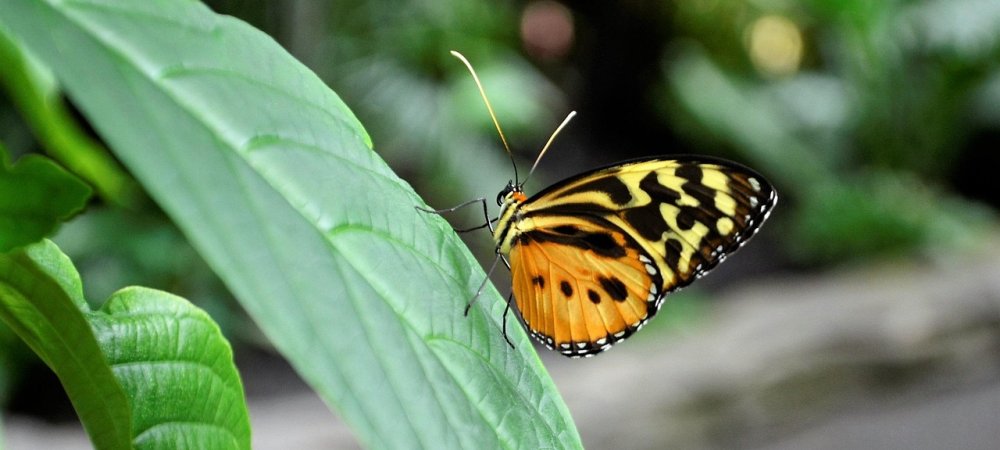Eco-Friendly Lawn Care in Virginia: A Greener Approach to Yard Maintenance

Virginia homeowners take great pride in their lush, green lawns. However, traditional lawn care methods can have significant environmental impacts, from excessive water use to chemical runoff. Fortunately, eco-friendly lawn care offers a sustainable way to maintain a beautiful yard while protecting the environment. This guide explores organic fertilizers, water conservation strategies, eco-friendly weed and pest control, and other sustainable practices tailored for Virginia’s climate.
Here are 10 eco-friendly lawn care tips:
- Choose Native Grass Varieties
- Water Wisely
- Practice Proper Mowing
- Keep Your Lawn Weed-Free Naturally
- Improve Soil Health
- Use Organic and Natural Fertilizers
- Encourage Beneficial Insects and Pollinators
- Use Natural Pest Control Methods
- Consider Native and Low-Maintenance Landscaping
- Invest in Sustainable Lawn Equipment
1. Choose Native Grass Varieties
Virginia is home to several native grass species that are well-adapted to the local climate. By opting for native varieties, you can significantly reduce your need for water, fertilizers, and pesticides. Common native grasses are drought-tolerant and thrive in Virginia’s hot weather conditions, helping you save on water bills and reduce your carbon footprint.
Consider these eco-friendly grass options:
- Tall Fescue: This cool-season grass is drought-tolerant and requires less fertilization.
- Fine Fescue: Ideal for shaded areas, it requires less mowing and water.
- Bermudagrass: A warm-season option that thrives in Virginia’s coastal regions.
- Zoysiagrass: Drought-resistant and dense, reducing weed growth naturally.
Learn more about the best types of grass for Virginia lawns.
2. Water Wisely
Watering your lawn is essential, but doing so efficiently is key to being eco-friendly. Virginia’s hot summers can put a strain on water resources while overwatering wastes water and even promotes the growth of weeds.
Keep these water tips in mind:
- Water Deeply but Infrequently: Instead of daily shallow watering, irrigate 1-2 times per week with about 1 inch of water. Soaker hoses are especially effective in this regard.
- Early Morning/Late Evening Watering: Prevents excess evaporation and can help limit fungal growth.
- Set Up Rain Barrels: Collect rainwater for irrigation, reducing reliance on municipal water.
- Install Drip-Irrigation Systems: Provide targeted watering to plant roots, reducing waste and evaporation.
- Consider a Smart Irrigation System: These sprinkler systems adjust based on weather and moisture levels.
Learn more in our VA watering guide.
3. Practice Proper Mowing
Mowing is one of the most common lawn care tasks, but how you mow can have a big impact on the environment. Follow these mowing tips:
- Use an Electric or Reel Mower: Reduces emissions compared to gas-powered mowers.
- Leave Grass Clippings: Acts as a natural fertilizer through mulching.
- Sharpen Mower Blades: Ensures a clean cut, reducing stress on grass.
- Adjust Mowing Height: Keeping grass at an optimal height (3-4 inches) reduces water loss and suppresses weeds.
- Rotate Mowing Patterns: Changing mowing directions each time prevents soil compaction and promotes even growth.

4. Keep Your Lawn Weed-Free Naturally
Weeds are a common nuisance, but using chemical herbicides can harm your soil, water, and beneficial insects. Instead, try these natural weed control methods to maintain a healthy, eco-friendly lawn:
- Hand-Pull Weeds After Rain: Weeds are easier to remove by hand when the soil is moist. Use a weeding tool to get the entire root.
- Use Corn Gluten Meal: This natural pre-emergent herbicide prevents weed seeds from germinating while adding nitrogen to your soil.
- Use Boiling Water or Vinegar: Spot-treat weeds in driveways and walkways with boiling water or a mix of vinegar and a small amount of dish soap. Be cautious, as vinegar can also harm surrounding grass and plants.
- Apply Organic Mulch: A layer of mulch in garden beds and around trees suppresses weeds while retaining soil moisture.
- Overseed Your Lawn: A thick, healthy lawn naturally crowds out weeds. Overseeding with hardy grass varieties prevents weeds from taking root.
By combining these natural weed control methods with proper lawn care, you can keep weeds at bay without resorting to harsh chemicals. Learn more about how to get rid of common VA weeds.
5. Improve Soil Health
Healthy soil is the foundation of a sustainable lawn. Consider these methods:
- Soil Testing: Available through Virginia Tech Cooperative Extension, soil testing helps homeowners apply the right nutrients.
- Aeration: Helps oxygen, water, and nutrients reach grass roots, especially in Virginia’s clay-heavy soil. Annual lawn aeration helps to reduce compaction and promote healthy root growth. Learn more about the benefits of lawn aeration.
- Topdressing with Compost: Adding organic matter improves soil structure and water retention.
- Cover Crops: Clover or ryegrass improve soil structure and nitrogen levels over time.
Learn more in our guide to soil testing in VA.

6. Use Organic and Natural Fertilizers
Chemical fertilizers can lead to nutrient runoff, which harms local waterways, including the Chesapeake Bay, and pollute the surrounding environment. Instead, opt for organic fertilizers made from natural materials such as:
- Compost: A nutrient-rich option that improves soil health naturally.
- Mulched Grass Clippings: Naturally fertilizes the lawn as it decomposes.
- Manure-Based Fertilizers: Available in pelletized forms for easy application.
- Organic Lawn Feeds: Brands that contain natural ingredients like bone meal and seaweed. Look for products labeled OMRI (Organic Materials Review Institute) certified for the best quality.
These fertilizers slowly release nutrients into the soil and are better for long-term lawn health. Applying fertilizer in the fall, when roots absorb nutrients best, ensures a healthier lawn year-round. Virginia’s varied climate means cool-season grasses, like fescue, benefit most from organic feeding in late summer or early fall.
Make Your Own Compost
Instead of sending yard waste to the landfill, start a composting pile. Composting yard clippings, leaves, and even food scraps helps to reduce waste and creates rich, organic soil that you can use to improve your lawn’s health. Additionally, applying mulch to your lawn and garden beds not only conserves moisture but also reduces the need for chemical herbicides by naturally suppressing weeds.
7. Encourage Beneficial Insects and Pollinators
Pesticides can kill more than just pests—they can harm beneficial insects like bees, ladybugs, and earthworms. Instead of using harmful chemicals, attract pollinators and beneficial insects by planting native flowering plants like:
Flowering Plants for Pollinators:
- Purple Coneflower
- Black-eyed Susan
- Bee Balm
- Milkweed
- Goldenrod
- Joe-Pye Weed
- Coreopsis
- Yarrow
Herbs that Attract Beneficial Insects:
- Lavender
- Thyme
- Basil
- Dill
- Fennel
- Parsley
Shrubs and Trees for Pollinators & Beneficial Insects:
- Eastern Redbud
- Serviceberry
- Buttonbush
- Summersweet Clethra
- Spicebush
- Wild Cherry
By incorporating a mix of these native plants, you can create a thriving ecosystem that supports pollinators and beneficial insects while improving biodiversity in your yard.

8. Use Natural Pest Control Methods
Virginia lawns attract common pests like grubs, mosquitoes, and chinchbugs. Reduce their impact using eco-friendly solutions:
- Beneficial Nematodes: Natural predators of grubs that help prevent lawn damage.
- Neem Oil Sprays and Insecticidal Soaps: Effective against various insects while being safe for pets and wildlife.
- Encourage Natural Predators: Birds, ladybugs, and praying mantises help control harmful pests.
- Diatomaceous Earth: A non-toxic powder that deters ants, fleas, and other pests.
- Companion Planting: Marigolds, lavender, and chrysanthemums naturally repel pests while beautifying your yard.
9. Consider Native and Low-Maintenance Landscaping
A growing trend in eco-friendly lawn care is reducing lawn size and replacing sections with low-maintenance ground covers or garden beds. This not only reduces your need for frequent mowing and watering but also creates space for biodiversity. In addition to native grasses, like fine fescue and buffalo grass, some excellent alternatives include:
- Ground Covers: Clover, creeping thyme, sedum, and moss provide green coverage without frequent mowing.
- Pollinator-Friendly Plants: Plants like those listed above help to support local wildlife.
- Shade-Loving Natives: Ferns, wild columbine, and foamflower thrive in shady areas with minimal upkeep.
- Drought-Tolerant Perennials: Butterfly weed, purple coneflower, and goldenrod require little water and thrive in Virginia's conditions.
If maintaining a traditional lawn isn’t appealing, these alternatives generally require less water, fertilizer, and pesticides, providing beautiful, low-maintenance solutions that are more sustainable than grass.
10. Invest in Sustainable Lawn Equipment
Switching to eco-friendly lawn equipment reduces pollution and energy use:
- Battery-Powered Mowers and Trimmers: Offer a cleaner alternative to gas-powered tools.
- Manual Tools: Rakes and push mowers eliminate emissions completely.
- Solar-Powered Lights: Illuminate walkways and gardens sustainably.
- Electric Leaf Blowers: Reduce noise and air pollution compared to gas-powered models.
- Smart Lawn Sensors: Detect when your lawn needs water based on moisture levels.
- Robotic Lawn Mowers: Use less energy and operate more quietly.
Final Thoughts On Eco-Friendly Lawn Care
Caring for your lawn the eco-friendly way not only makes your yard healthier but also benefits the local ecosystem in Virginia. By embracing sustainable practices, you can reduce water usage, limit chemical exposure, and create a lawn that thrives naturally. These eco-friendly lawn care tips will not only save you time and money in the long run, but they’ll also help you maintain a beautiful, green space that you can be proud of—without harming the planet.
Ready to take the next step in eco-friendly lawn care? Contact a local lawn care professional at Agronomic Lawn Management to get personalized recommendations for your Virginia lawn.
What's more, our team offers professional eco-friendly lawn care services! Let our team ensure your lawn gets the care it deserves.
